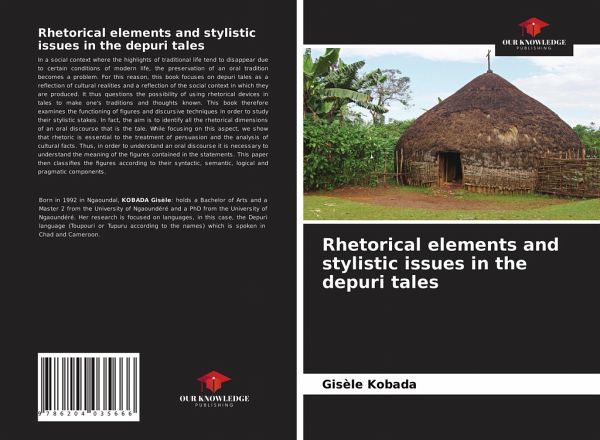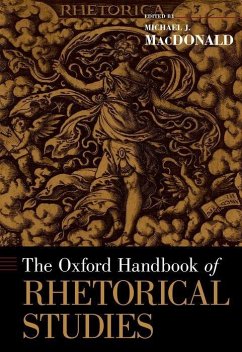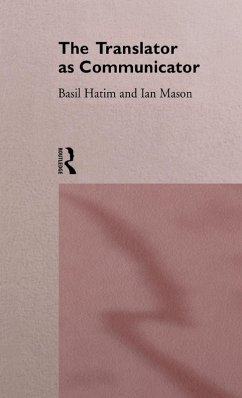
Rhetorical elements and stylistic issues in the depuri tales
Versandkostenfrei!
Versandfertig in 6-10 Tagen
27,99 €
inkl. MwSt.

PAYBACK Punkte
14 °P sammeln!
In a social context where the highlights of traditional life tend to disappear due to certain conditions of modern life, the preservation of an oral tradition becomes a problem. For this reason, this book focuses on depuri tales as a reflection of cultural realities and a reflection of the social context in which they are produced. It thus questions the possibility of using rhetorical devices in tales to make one's traditions and thoughts known. This book therefore examines the functioning of figures and discursive techniques in order to study their stylistic stakes. In fact, the aim is to ide...
In a social context where the highlights of traditional life tend to disappear due to certain conditions of modern life, the preservation of an oral tradition becomes a problem. For this reason, this book focuses on depuri tales as a reflection of cultural realities and a reflection of the social context in which they are produced. It thus questions the possibility of using rhetorical devices in tales to make one's traditions and thoughts known. This book therefore examines the functioning of figures and discursive techniques in order to study their stylistic stakes. In fact, the aim is to identify all the rhetorical dimensions of an oral discourse that is the tale. While focusing on this aspect, we show that rhetoric is essential to the treatment of persuasion and the analysis of cultural facts. Thus, in order to understand an oral discourse it is necessary to understand the meaning of the figures contained in the statements. This paper then classifies the figures according to their syntactic, semantic, logical and pragmatic components.












